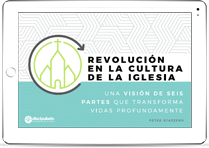Learning from Angelina Jolie
For the people of this world are more shrewd in dealing with their own kind than the are the people of the light. (Luke 16:8) I was deeply moved by a front page article in the New York Times yesterday, along with Angelina Jolie’s editorial a day earlier, about her courageous decision to have a preventive double mastectomy. She writes: “On April 27, I finished the three months of medical procedures that the mastectomies involved…I am writing about it now because I hope that other women can benefit from my experience.” While Angelina does not, as far as I know, consider herself a Christ-follower, we can learn a few things from her. Leading out of brokenness and vulnerability is powerful. She went public on an issue few Christians have been willing to talk about. We are imperfect human beings with limits. Beautiful and rich as she may be, she humbly acknowledged that she is. Read more.






